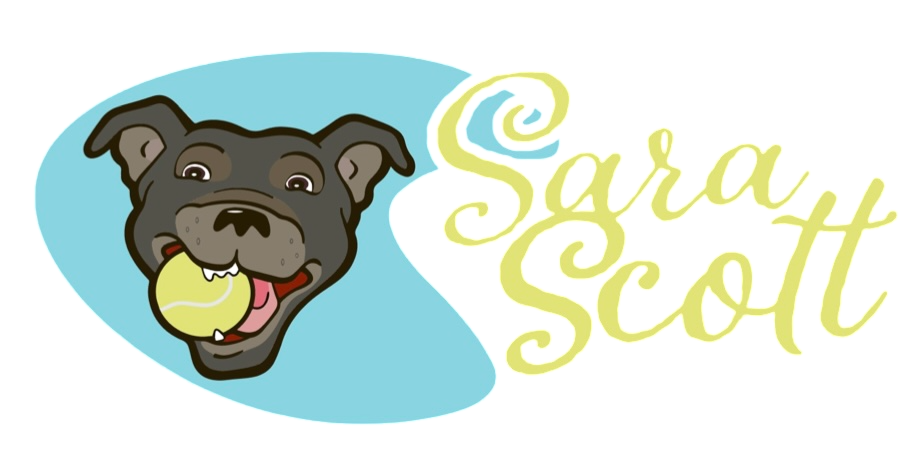Helping Noise-Sensitive Dogs Find Calm
- Sara Scott

- Sep 28, 2023
- 3 min read
Updated: Sep 30, 2023
Does your dog become anxious, fearful, or startle at loud noises like fireworks, thunderstorms, or traffic? You’re not alone – noise sensitivity is extremely common in dogs. But living in a state of chronic anxiety due to sound reactivity takes a toll on dogs’ mental and physical wellbeing. As caring owners, we want to help our pups cope with noise triggers and learn to feel secure. Read on to better understand noise anxiety and steps you can take to reduce your dog’s stress.
What Triggers Noise Anxiety?
Noise sensitivity spans a spectrum in dogs. Some dogs may be startled by a loud bang then immediately recover. Others experience more intense, lasting fear. Common sound triggers include:
- Sudden noises - fireworks, gunshots, balloons popping
- Machinery/vehicles - vacuum cleaners, motorcycles, trucks, planes
- Weather - thunder, wind, rain
- Crowds - parties, construction sites, stadium events
- Musical instruments - whistles, bass-heavy music
-Household sounds - garbage disposal, blender, doors slamming
Dogs also often fear noises associated with previous traumatic incidents. Their sensitive hearing picks up frequencies we can’t detect, adding to the stress.

Signs Your Dog is Noise-Sensitive
How can you tell if your dog is struggling with noise anxiety? Be on the lookout for these common signs:
- Hiding, pacing, trembling, or trying to escape when noises occur
- Barking, whining, or howling in response to sounds
- Following owners closely or displaying clingy behavior
- Refusing food or treats during noisy events
- Heightened startle response and overall skittishness
- Destructive behavior or elimination accidents resulting from panic
- Aggression or reactivity towards the source of sounds
- Reluctance to go outdoors when noises are present
If your dog exhibits several of these signals, it’s likely they feel anxious about noise. Left untreated, this stress can impact their quality of life. The good news? There are many ways we can intervene to help our pups.
Strategies to Ease Noise Anxiety
Here are some of the most effective tactics for reducing noise sensitivity:
Desensitization Exercises
Systematically exposing your dog to audio recordings of triggers and pairing them with food can build tolerance and reframes how your dog perceives the sounds. Start with very low, brief volumes and slowly increase. Go at your dog’s pace. If they seem distressed, dial back and move more gradually. Look for signs of relaxation like eating treats or laying down.
Counterconditioning
When you can’t control sound exposure, like thunderstorms, countercondition with special rewards. Do fun activities and give high-value treats when storms or other triggers occur to shift your dog’s emotional association. Over time, they’ll view the noises as predictors of good things rather than something to fear.
Create a Safe Space
Designate an interior room or covered crate as your dog’s retreat for when noises startle them. Equip it with a comfortable bed, toys, water and anything else that relaxes your dog. Teach them to go to their safe space during noise triggers and reward them for relaxing there. Muting sounds with insulation, white noise machines, box fans or music helps too.
Management and Prevention
Avoid outright exposing your dog to overwhelming noises while you work on desensitization. If fireworks or thunderstorms are forecasted, keep them indoors with blinds drawn. Use noise-cancelling headphones during walks or in the home. Strategically limiting exposure prevents rehearsing anxious behaviors.
Medication
For challenging noise anxiety, consult your veterinarian about anti-anxiety medications. Medication alongside behavior modification is often the most effective approach and can vastly improve your dog’s quality of life.
Consistency and Patience
Change won’t happen overnight. Stick with the training plan and maintain realistic expectations about the duration and intensity of noises your dog can handle. With time, persistence, and empathy, you’ll help your noise-sensitive pup learn to cope.
When to Seek Professional Help
If your dog’s noise anxiety seems severe and doesn’t improve with initial efforts, enlist the help of a certified dog trainer and/or veterinary behaviorist. They can design a customized desensitization and counterconditioning plan while also assessing for any underlying medical issues. Working with a professional sets your noise-phobic dog up for success.
Your Nervous Dog Needs You
Living in chronic fear of common sounds is stressful for dogs (and owners!). But through patience, prevention, desensitization training, medication, and creating safe spaces, you can help your noise-reactive pup finally relax. With some knowledge and proactive planning, you'll be on the path to a less anxious, more settled dog.
Does your canine companion get distressed by noises? Start implementing these strategies to reduce their anxiety and improve how they cope. Don't let noise sensitivity stop your dog from feeling safe and secure. Help them overcome their fear and thrive in our human world!
Is your dog stressed by noises? Let's help them feel calm and secure. Click here to reach out - I'm ready to create a customized training and behavior plan that works.




Comments